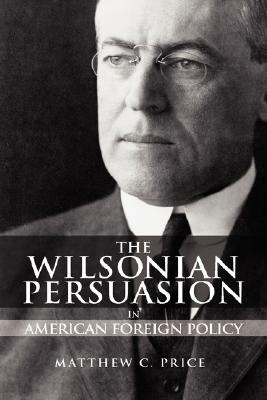
- We will send in 10–14 business days.
- Author: Matthew C Price
- Publisher: Cambria Press
- Year: 2007
- Pages: 296
- ISBN-10: 1934043826
- ISBN-13: 9781934043820
- Format: 15.2 x 22.9 x 2.1 cm, kieti viršeliai
- Language: English
- SAVE -10% with code: EXTRA
The Wilsonian Persuasion in American Foreign Policy (e-book) (used book) | bookbook.eu
Reviews
Description
In this remarkably well-written book, Dr. Price examines the epochal transformation of the United States from a largely isolationist nation, to one which has come to play a central role in world affairs, using its vast political resources and, in the final analysis, its military capabilities, to dramatically alter the world order in the twentieth century. This shift required the active promotion of internationalism by key political leaders such as Woodrow Wilson himself, Franklin Roosevelt, and others, often in response to the shifting facts of global power, and working tirelessly to sway American public opinion toward greater involvement in the global arena. When Woodrow Wilson proclaimed that the United States should make the world "safe for democracy," he was enunciating a vision of national duty, already latent in Americans' ideals, which would frame U.S. foreign policy for generations. The book provides a detailed account of one of the great turning points in American and world history, the American embrace of globalism.
EXTRA 10 % discount with code: EXTRA
The promotion ends in 23d.22:14:46
The discount code is valid when purchasing from 10 €. Discounts do not stack.
- Author: Matthew C Price
- Publisher: Cambria Press
- Year: 2007
- Pages: 296
- ISBN-10: 1934043826
- ISBN-13: 9781934043820
- Format: 15.2 x 22.9 x 2.1 cm, kieti viršeliai
- Language: English English
In this remarkably well-written book, Dr. Price examines the epochal transformation of the United States from a largely isolationist nation, to one which has come to play a central role in world affairs, using its vast political resources and, in the final analysis, its military capabilities, to dramatically alter the world order in the twentieth century. This shift required the active promotion of internationalism by key political leaders such as Woodrow Wilson himself, Franklin Roosevelt, and others, often in response to the shifting facts of global power, and working tirelessly to sway American public opinion toward greater involvement in the global arena. When Woodrow Wilson proclaimed that the United States should make the world "safe for democracy," he was enunciating a vision of national duty, already latent in Americans' ideals, which would frame U.S. foreign policy for generations. The book provides a detailed account of one of the great turning points in American and world history, the American embrace of globalism.


Reviews